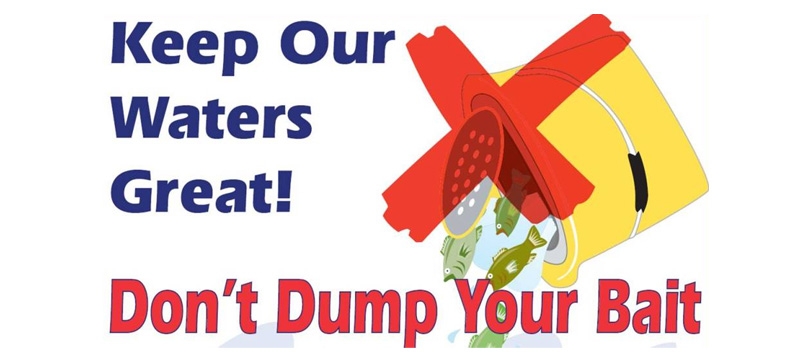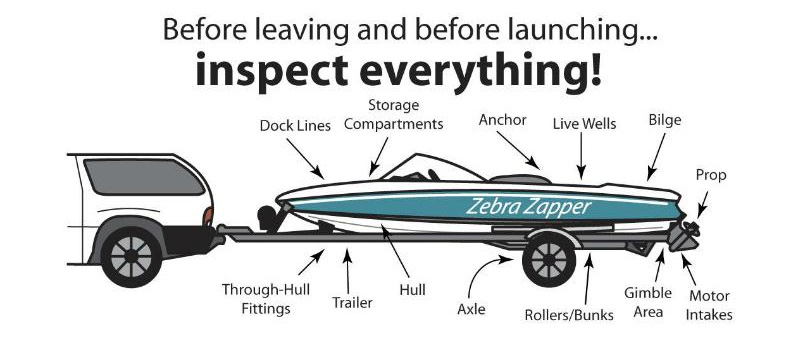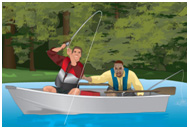Lake Fishing & Funding
|
Report from Jeremy Kloska kloska1742@yahoo.com JULY 2020
Due to covid the DNR still doesn't know if they will be doing the state planting of walleye fingerlings this year or postpone until next year..
I spoke to our fish supplier at Stoney Creek Fisheries and he said his fish are coming along and growing great this summer and will be ready for an October delivery.. he wanted to know if we were going to still do 1000 walleye and 1000 crappie or just the walleye.. what does the association think?
Lots of reports of people catching all kinds of fish in the lake.. reports of walleye being caught casting from shore, lots of pike and bass caught trolling and kids on every dock catching bluegills..
if everyone could email me some of their fishing results it would help me getting the most accurate reports to all of you! Hopefully more information on DNR fingerling planting to come soon but Covid has slowed down everything.
Fishing on Long Lake |
|
Long Lake offers a wonderful opportunity to catch a variety of fish species. Anglers can expect to catch northern pike, largemouth and smallmouth bass, channel catfish, rock bass, bluegill, black crappie, yellow perch, and walleye. To be successful, one needs only to drop a hook and line from the dock to still-fish, cast a fly and test fly-fishing skills on a calm day, flip a lure and jig, or troll slowly down the lake. Whether alone, in pairs, or doing the small group thing, fishing offers a wonderful opportunity to kick back and relax. Through the seasons it is a favorite hobby for young and old. LLPOA boasts an active fish committee chaired by Jeremy Kloska, and the membership is committed to a regular fish stocking plan each year. In addition to the DNR stocking thousands of small walleye fingerlings every other year, the Association uses annual dues and donations to pay a DNR approved fish farm, Stoney Creek Fisheries, to stock thousands of larger 6”-10” walleye fingerlings each October. (The DNR requires that all fish planted are disease free and stocking permits are required.) These larger fingerlings have a greater chance of survival from being fish bait, and we have been very pleased with the program results. The membership is also considering the possibility of stocking panfish such as crappie and bluegill. |
|
There are new amendments to the DNR law, that fisherman who launch boats in the lake must abide by. |
| What Anglers Need to Know Before Launching Boats in the Lake – The Law |
 |
For anglers, these amendments codify the Michigan DNR’s Fisheries Order 245 regarding the release of baitfish, collection and use of baitfish and cut bait, and release of captured fish, specifically:
Anglers who are catching and releasing fish should only release the fish back into the same water or in a connecting body of water the fish could have reached on its own. Violation of the law is a state civil infraction and violators may be subject to fines up to $100. What you should do: To comply with the law and prevent the introduction and spread of aquatic invasive species, boaters should:
|
 |
| Safety Tips for Anglers Who Use Boats To Fish |
 |
Anglers who use boats to fish need to think of themselves first as boaters, then as fishermen. They should:
|
| Boating Etiquette in the Vicinity of Anglers |
 |
Vessel operators who are boating in the vicinity of fishing boats should:
|
|
Fishing on Long Lake |
|
Long Lake offers a wonderful opportunity to catch a variety of fish species. Anglers can expect to catch northern pike, largemouth and smallmouth bass, channel catfish, rock bass, bluegill, black crappie, yellow perch, and walleye. To be successful, one needs only to drop a hook and line from the dock to still-fish, cast a fly and test fly-fishing skills on a calm day, flip a lure and jig, or troll slowly down the lake. Whether alone, in pairs, or doing the small group thing, fishing offers a wonderful opportunity to kick back and relax. Through the seasons it is a favorite hobby for young and old. LLPOA boasts an active fish committee chaired by Jeremy Kloska, and the membership is committed to a regular fish stocking plan each year. In addition to the DNR stocking thousands of small walleye fingerlings every other year, the Association uses annual dues and donations to pay a DNR approved fish farm, Stoney Creek Fisheries, to stock thousands of larger 6”-10” walleye fingerlings each October. (The DNR requires that all fish planted are disease free and stocking permits are required.) These larger fingerlings have a greater chance of survival from being fish bait, and we have been very pleased with the program results. The membership is also considering the possibility of stocking panfish such as crappie and bluegill. |
|
There are new amendments to the DNR law, that fisherman who launch boats in the lake must abide by. |
| What Anglers Need to Know Before Launching Boats in the Lake – The Law |
 |
For anglers, these amendments codify the Michigan DNR’s Fisheries Order 245 regarding the release of baitfish, collection and use of baitfish and cut bait, and release of captured fish, specifically:
Anglers who are catching and releasing fish should only release the fish back into the same water or in a connecting body of water the fish could have reached on its own. Violation of the law is a state civil infraction and violators may be subject to fines up to $100. What you should do: To comply with the law and prevent the introduction and spread of aquatic invasive species, boaters should:
|
 |
| Safety Tips for Anglers Who Use Boats To Fish |
 |
Anglers who use boats to fish need to think of themselves first as boaters, then as fishermen. They should:
|
| Boating Etiquette in the Vicinity of Anglers |
 |
Vessel operators who are boating in the vicinity of fishing boats should:
|


